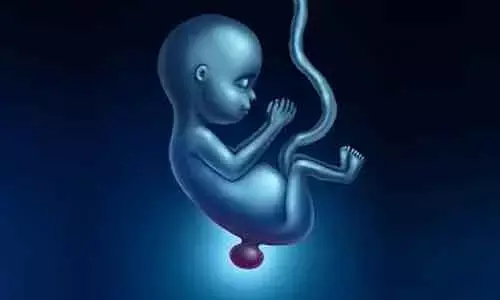- Home
- Medical news & Guidelines
- Anesthesiology
- Cardiology and CTVS
- Critical Care
- Dentistry
- Dermatology
- Diabetes and Endocrinology
- ENT
- Gastroenterology
- Medicine
- Nephrology
- Neurology
- Obstretics-Gynaecology
- Oncology
- Ophthalmology
- Orthopaedics
- Pediatrics-Neonatology
- Psychiatry
- Pulmonology
- Radiology
- Surgery
- Urology
- Laboratory Medicine
- Diet
- Nursing
- Paramedical
- Physiotherapy
- Health news
- Fact Check
- Bone Health Fact Check
- Brain Health Fact Check
- Cancer Related Fact Check
- Child Care Fact Check
- Dental and oral health fact check
- Diabetes and metabolic health fact check
- Diet and Nutrition Fact Check
- Eye and ENT Care Fact Check
- Fitness fact check
- Gut health fact check
- Heart health fact check
- Kidney health fact check
- Medical education fact check
- Men's health fact check
- Respiratory fact check
- Skin and hair care fact check
- Vaccine and Immunization fact check
- Women's health fact check
- AYUSH
- State News
- Andaman and Nicobar Islands
- Andhra Pradesh
- Arunachal Pradesh
- Assam
- Bihar
- Chandigarh
- Chattisgarh
- Dadra and Nagar Haveli
- Daman and Diu
- Delhi
- Goa
- Gujarat
- Haryana
- Himachal Pradesh
- Jammu & Kashmir
- Jharkhand
- Karnataka
- Kerala
- Ladakh
- Lakshadweep
- Madhya Pradesh
- Maharashtra
- Manipur
- Meghalaya
- Mizoram
- Nagaland
- Odisha
- Puducherry
- Punjab
- Rajasthan
- Sikkim
- Tamil Nadu
- Telangana
- Tripura
- Uttar Pradesh
- Uttrakhand
- West Bengal
- Medical Education
- Industry
Prenatal spina bifida repair better than postnatal repair: JAMA Pediatrics

USA: Prenatal repair of spina bifida (SB) is more beneficial than standard postnatal repair in terms of improving functional mobility and motor levels in children, finds a recent study in the journal JAMA Pediatrics. According to the study, the benefits of prenatal repair for myelomeningocele (a severe form of spina bifida) reported at age 30 months persisted into school age.
The Management of Myelomeningocele Study (MOMS) is a randomized clinical trial of prenatal vs standard postnatal repair for myelomeningocele. It found that prenatal repair reduced hydrocephalus and hindbrain herniation and improved motor function in children aged 12 to 30 months. The Management of Myelomeningocele Study Follow-up (MOMS2) was performed in children aged 5 to 10 years. The primary (neurocognitive) outcome has already been reported.
Amy J. Houtrow, University of Pittsburgh, Pittsburgh, Pennsylvania, and colleagues aimed to determine whether MOMS2 participants who had prenatal repair have better physical functioning than those with postnatal repair.
For the purpose, the researchers recruited participants from MOMS for participation in the follow-up study, MOMS2, conducted from April 9, 2012, to April 15, 2017. For this secondary analysis of the randomized clinical trial, trained examiners without knowledge of the treatment group evaluated the physical characteristics, self-care skills, neurologic function, and mobility of the children. The researchers then compared the physical functioning outcomes between the prenatal and postnatal repair groups.
3 clinical sites were same for both MOMS2 and MOMS. For the families who were unable to travel to one of the clinical sites, home visits were conducted. Of the 161 children with myelomeningocele aged 5 to 10 years old enrolled in MOMS2, 154 had a physical examination and were included in the analyses.
Main outcomes was prespecified secondary trial outcomes of self-care skills, functional mobility, walking skills, and motor level.
This analysis included 78 children with postnatal repair and 76 with prenatal repair.
Key findings of the study include:
- Children in the prenatal repair group were more competent with self-care skills (mean [SD] percentage of maximum FRESNO Scale score, 90.8% [9.6%] vs 85.5% [17.6%]) and were commonly community ambulators per the Modified Hoffer Classification (51.3% prenatal vs 23.1% postnatal; adjusted relative risk [aRR] for sex, 1.70).
- Children with prenatal repair also performed the 10-m walk test 1 second faster (difference in medians, 1.0), had better gait quality (adjusted mean difference for home distances of 5 m, 1.71), and could perform higher-level mobility skills (adjusted mean difference for motor total, 5.70).
- Children in the prenatal repair group were less likely to have a motor function level worse than their anatomic lesion level (aRR, 0.44).
"This secondary analysis of a randomized clinical trial found that the physical functioning benefits of prenatal repair for myelomeningocele reported at age 30 months persisted into school age. These findings indicate the benefit of prenatal repair of myelomeningocele for school-aged children," wrote the authors.
The study titled, "Prenatal Repair and Physical Functioning Among Children With Myelomeningocele: A Secondary Analysis of a Randomized Clinical Trial, is published in the journal JAMA Pediatrics.
DOI: https://jamanetwork.com/journals/jamapediatrics/article-abstract/2776161
Dr Kamal Kant Kohli-MBBS, DTCD- a chest specialist with more than 30 years of practice and a flair for writing clinical articles, Dr Kamal Kant Kohli joined Medical Dialogues as a Chief Editor of Medical News. Besides writing articles, as an editor, he proofreads and verifies all the medical content published on Medical Dialogues including those coming from journals, studies,medical conferences,guidelines etc. Email: drkohli@medicaldialogues.in. Contact no. 011-43720751


